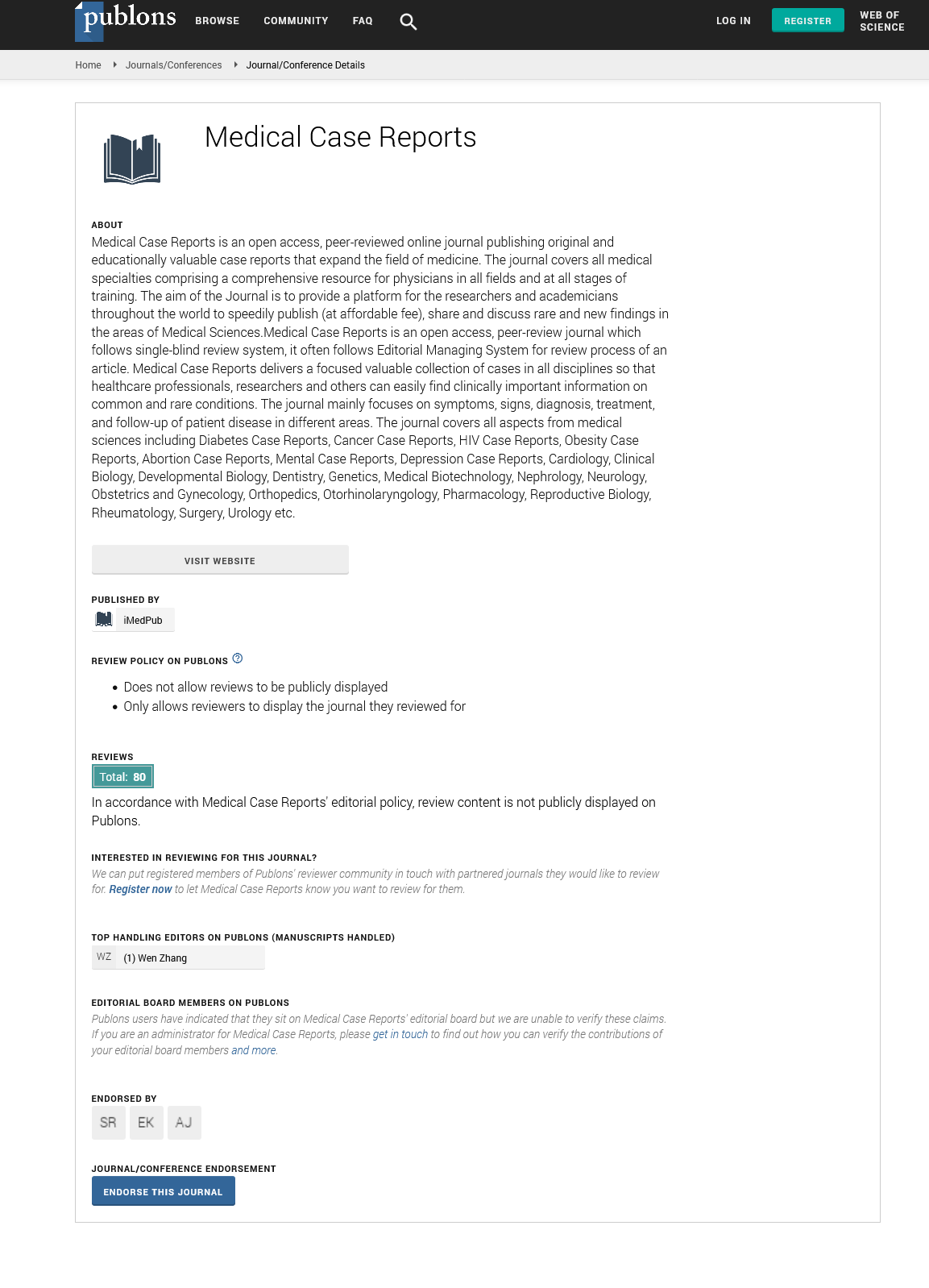ISSN : 2471-8041
Medical Case Reports
Interdisciplinary team work in pelvic floor surgery
International Conference on Physicians, Surgeons and Case Reports
November 19-20, 2018 Paris, France
Ahmed Masaoud Mohamed, T Nasser, Y Salam and Abdulrahman Badawi
Aldara Hospital and Medical Centre, Al-Faisal University, KSA
ScientificTracks Abstracts: Med Case Rep
DOI: 10.21767/2471-8041-C2-005
Abstract
Introduction: Pelvic floor is a very narrow space and contains many organs closed to each other. These many different organs are managed from different specialties depending on clinical picture or defect. In fact any weakness or defect will affect all organs in the pelvis in different levels which means management of this group of diseases should be through a team including general surgeon, urologist, and gynaecologist and may be some others as per need.
Purpose & Objectives: The aim is to highlight the importance of interdisciplinary clinical team work for management of the pelvic floor defects and its impact on clinical and surgical outcome.
Methods: Summary of the literature in this regard together with our experience in team work for managing pelvic defects.
Discussion: The descent of the pelvic floor usually affects more or less all the pelvic organs irrespective of the clinical picture of the patient. The mild to moderate defects not related to the specialty field of the treating physician could be difficult to detect or to deal with will without having the opinions of the other colleagues of interest. The pre/intra/and post-operative consultation at the right time can improve the clinical and surgical outcome and may avoid or reduce the complication risk before occurring.
Results: Establishment of pelvic floor centres like that practised in the German system seems to be an effective way of better preoperative assessment and postoperative results. This clinical team may include general surgery, urology, gynaecology and as per need neurology, spine surgery, psychiatry and dietician. Detection of hidden pelvic floor defects will be easier and earlier through this combined team work. The continuous interdisciplinary management in the preintra- and-post phase seems to improve the clinical and surgical outcome. This multidisciplinary group work as it takes care of all pelvic organs at the same time can reduce the complications risk.
Conclusion: Preoperative interdisciplinary team assessment and cooperation of the all involved surgeons/physicians (pre/intra/and postoperatively) seems to improve the clinical and surgical outcomes and reduce the risk of complications.
Biography
Ahmed Masaoud Mohamed has completed his Medical Study at University of Tripoli, Libya. Then he finished his urological training and got his German Board and the European Board Urological Qualification in 2007, from Witten/Herdecke University in Germany and Postdoctoral Studies from the same University. He is a Consultant Urologist since 2009, now he is practicing as an Asst. Professor at Al-Faisal University, Riyadh, KSA. He has published many papers in reputed journals and has shared in many international congresses.
E-mail: a-assaid@web.de
Google Scholar citation report
Citations : 241
Medical Case Reports received 241 citations as per Google Scholar report
Medical Case Reports peer review process verified at publons
Abstracted/Indexed in
- Google Scholar
- China National Knowledge Infrastructure (CNKI)
- Cosmos IF
- Directory of Research Journal Indexing (DRJI)
- WorldCat
- Publons
- Secret Search Engine Labs
- Euro Pub
Open Access Journals
- Aquaculture & Veterinary Science
- Chemistry & Chemical Sciences
- Clinical Sciences
- Engineering
- General Science
- Genetics & Molecular Biology
- Health Care & Nursing
- Immunology & Microbiology
- Materials Science
- Mathematics & Physics
- Medical Sciences
- Neurology & Psychiatry
- Oncology & Cancer Science
- Pharmaceutical Sciences
